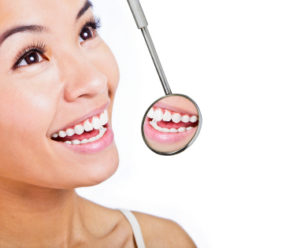We take care of all your general dentistry needs.These are some of the general dental conditions we treat.
Tooth Discoloration
Some of the most common causes of tooth discoloration are eating staining foods, like berries, and beverages such as coffee, tea, artificially-colored juices, and soft drinks. Other factors may be aging, defects within the tooth, and smoking.
Tooth Sensitivity
Tooth sensitivity is the discomfort you may feel when you have hot or cold food or drinks, or when you breathe cold air. It can be caused by gum recession or loss of tooth enamel, which exposes the dentin, which is the tooth’s second layer, to these elements. Fractures can also cause tooth sensitivity.
Plaque accumulation
Plaque is a sticky coating of bacteria and debris that grows and accumulates constantly on teeth and gums. Bacteria in this plaque cannot be seen with the naked eye, but presents real threat to your oral health. Plaque begins to build up in just 20 minutes after eating. If plaque is not removed and allowed to build up, it can lead to cavities, weakened tooth surfaces and gum disease (gingivitis and periodontitis).
Gingivitis
Gingivitis is an infection of the gums caused by the effect of plaque accumulation on your teeth. If you see pink on your toothbrush, which indicates gum bleeding, you may be suffering from gingivitis. Other signs of gingivitis are red, swollen or painful gums. Gingivitis is a condition that can be reversed completely by having regular cleanings at our office and by practicing good oral hygiene at home.
Periodontitis
Periodontitis is a bacterial infection of the gums, the ligaments and bone that support the teeth. Loss of support causes the teeth to become loose and eventually fall out. Periodontitis is the primary cause of tooth loss in adults.
Cavities
Cavities are holes in the tooth created by bacteria. Cavities are also known as tooth decay. Bacteria are normally found in your mouth. Bacteria, food pieces and debris combine in the mouth to form a sticky layer called plaque. Cavities usually do not hurt unless they grow very large and affect the nerve inside the tooth. An untreated cavity can lead to fractures, nerve damage, tooth abscess and eventually tooth loss. Most cavities, if treated early can be eliminated by fillings and restorations.
 Get the oral health you deserve. Call us for an appointment at (305) 648-9190.
Get the oral health you deserve. Call us for an appointment at (305) 648-9190.
